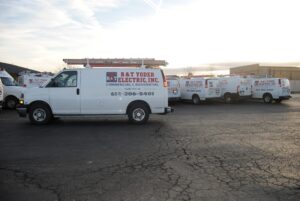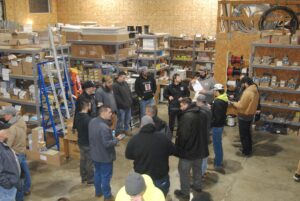Electric Panel Services
R&T Yoder Electric, Inc.
Top Notch Electric Panel Services
Every home has some kind of electrical panel. Some have older-style fuse boxes. Many others have newer breaker box electrical panels. Replacements for either type often depend on a variety of factors. Most commonly, you’ll find your electrical panel in your basement or an attached garage. However, this isn’t always the case: some homes have them hidden behind a panel in a kitchen cabinet.
There is a wide variety of maintenance tasks that come with home ownership. Not all of these are fun: no one likes to climb a ladder and clean out their gutters. Generally speaking, from time to time it may be necessary for you to have an electrical panel replacement. This is a component of your electrical setup within your house that you don’t think about.
Want An Estimate ?
Give us a call today
Ready to upgrade your electrical panel or ensure its optimal performance?
Contact Us Now!
Why Choose
Yoder Electric
When it comes to electrical panel services, Yoder Electric stands out for its commitment to excellence, attention to detail, and dedication to customer satisfaction. Our team combines technical expertise with a customer-centric approach to every single job.
Trust Yoder Electric for all your electric panel needs. With our commitment to excellence and customer satisfaction, we deliver superior service and lasting solutions that exceed your expectations. Contact us today to schedule a consultation and experience the difference our professional services can make for your home or business.
Over 10 Locations Across Ohio!
For close to over two decades, we have been serving businesses throughout Central Ohio.
- Plain City
- Westerville
- Marysville
- Reynoldsburg
- Dublin
- Springfield
- Pickerington
- Grove City
- Gahanna
- London
- Delaware
- Hillard
- Central Columbus
Who We Service
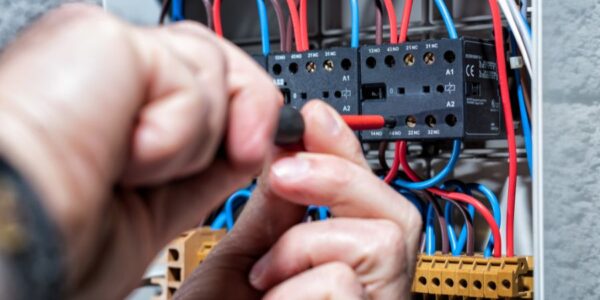
Residential Electric Panels
Residential electrical panels are essential components of your home’s electrical system, responsible for distributing power safely and efficiently. Over time, factors such as age, wear, and increased electrical demand can lead to issues like circuit overloads, tripped breakers, or outdated equipment. At Yoder Electric, our team specializes in residential panel services to address these concerns and ensure the reliability of your electrical system. Whether you need a panel upgrade to accommodate modern appliances or a repair to fix a faulty connection, our technicians have the expertise to get the job done right.
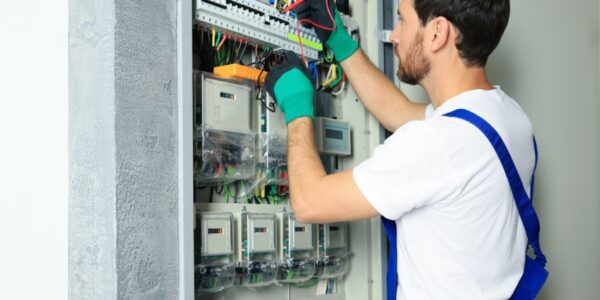
Commercial Electric Panels
Commercial electrical panels are critical for businesses, powering everything from lighting and HVAC systems to industrial machinery and equipment. Unlike residential panels, commercial panels often have higher amperage ratings and more complex configurations to meet the demands of commercial and industrial applications. At Yoder Electric, we offer comprehensive commercial panel services to ensure the safety and efficiency of your electrical infrastructure. From routine maintenance and inspections to panel upgrades and code compliance assessments, we have the knowledge and experience to keep your business powered and productive.
Electric Panel Services
Yoder Electric provides a comprehensive suite of services related to electric panels, addressing various needs and challenges faced by homeowners and businesses alike.
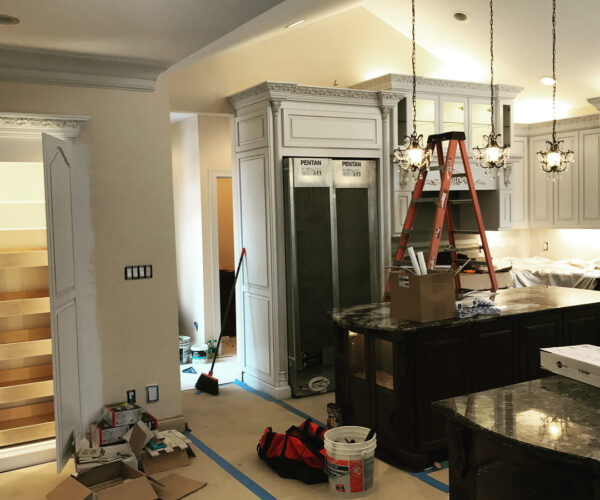
Installation
Electrical panel installation is a critical step in ensuring the proper functioning of your home or business’s electrical system. Our team meticulously plans and installs new panels to meet your specific requirements, adhering to industry standards and best practices. With a focus on quality craftsmanship and attention to detail, we guarantee a seamless installation process that minimizes disruptions and maximizes performance.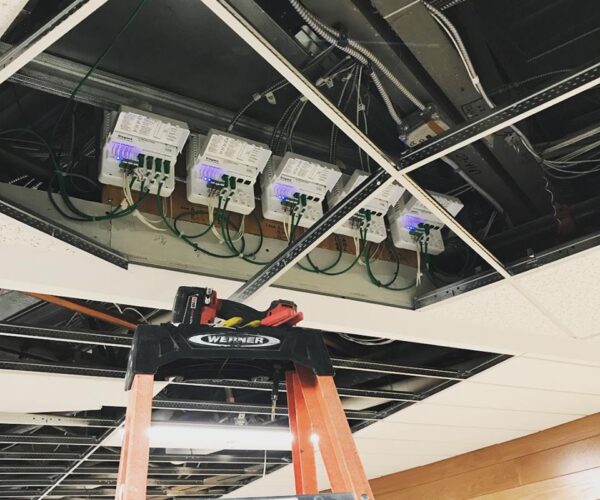
Upgrade
Upgrading an outdated or undersized electrical panel is essential for accommodating the increasing electrical demands of modern homes and businesses. Our technicians assess your current panel’s capacity and recommend suitable upgrades to enhance safety and efficiency. Whether you’re adding new appliances, expanding your living or working space, or simply improving electrical performance, we have the expertise to upgrade your panel effectively.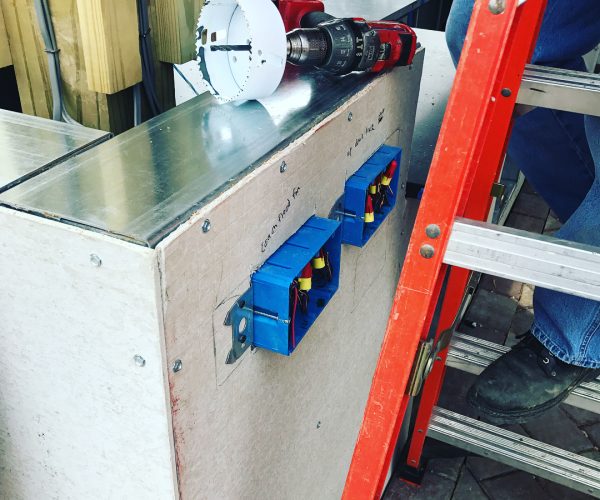
Repair
Electrical panel issues such as circuit overloads, loose connections, or faulty breakers can compromise the safety and reliability of your electrical system. Our skilled technicians conduct thorough diagnostics to identify the root cause of the problem and perform prompt repairs to restore proper functionality. With our quick response times and efficient repair techniques, we minimize downtime and ensure uninterrupted power supply to your property.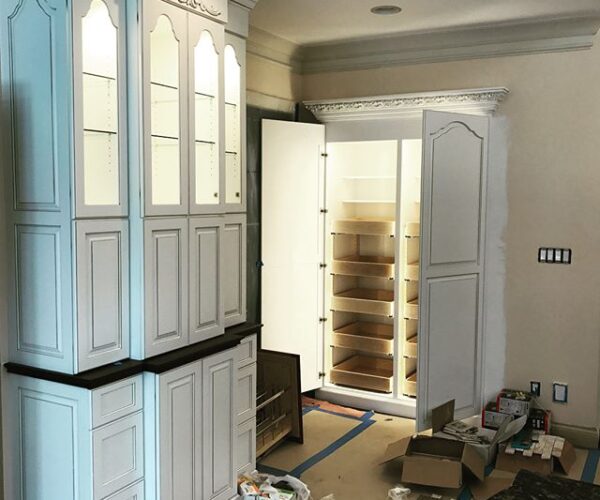
Replacement
Aging or damaged electrical panels pose significant safety risks and may no longer meet current building code requirements. Our replacement services involve the removal of old or defective panels and the installation of new, code-compliant units. We prioritize safety and compliance, ensuring that your new panel meets the highest standards for performance and reliability.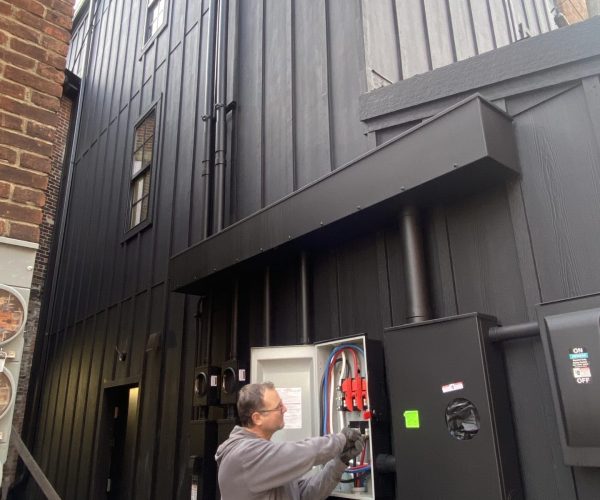
Inspection
Regular inspection of electrical panels is crucial for identifying potential hazards, code violations, or signs of deterioration. Our certified technicians conduct comprehensive panel inspections, examining all components for signs of wear, damage, or improper installation. We provide detailed reports and recommendations to address any issues and ensure the continued safe operation of your electrical system.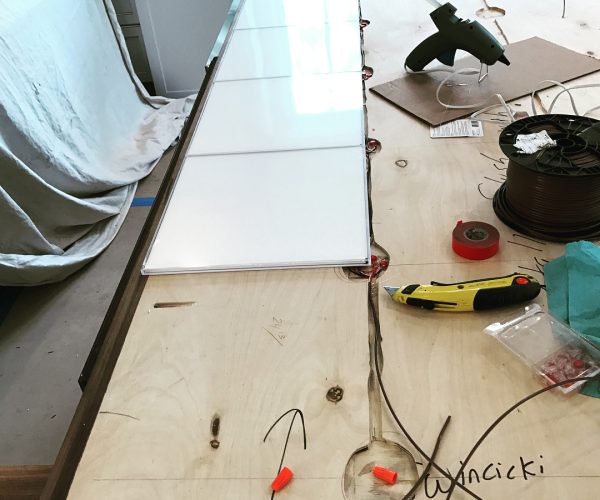
Load Calculation
Determining the electrical load requirements for your property is essential for selecting the appropriate panel size and capacity. Our load calculation services involve assessing your current and future electrical needs based on factors such as appliance usage, square footage, and equipment specifications. By accurately sizing your panel, we prevent overloading, circuit tripping, and other performance issues.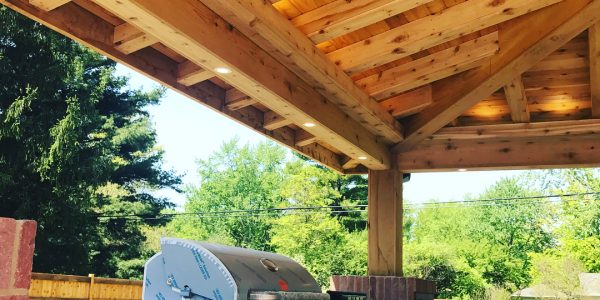
Circuit Addition or Removal
Adding or removing circuits from your electrical panel may be necessary to accommodate changes in your home or business’s electrical requirements. Our technicians handle circuit modifications with precision, ensuring proper wiring, connection, and labeling for easy identification and maintenance. Whether you’re expanding your electrical system or streamlining its configuration, we provide efficient and reliable circuit services.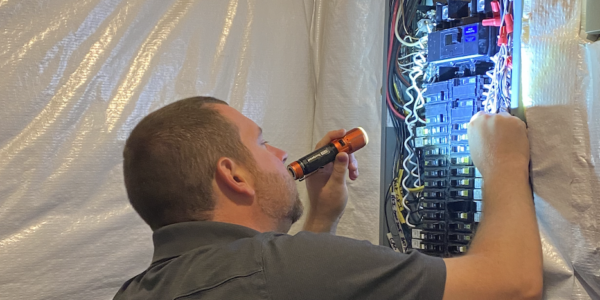
Code Compliance Assessment
Ensuring compliance with local building codes and regulations is essential for maintaining the safety and integrity of your electrical system. Our code compliance assessment services involve reviewing your electrical panel and associated components for adherence to applicable codes and standards. We identify any deficiencies or violations and recommend corrective actions to bring your panel up to code.The Difference Between Residential and Commercial Panels
Residential and commercial electrical panels differ in several key aspects:
- Size and Capacity: Commercial electrical panels are typically larger and have a higher capacity compared to residential panels. Commercial buildings often require more electrical power to support larger equipment, machinery, and higher occupancy levels.
- Voltage: Commercial panels may operate at higher voltages than residential panels to accommodate the larger electrical loads found in commercial settings.
- Number of Circuits: Commercial panels generally have a greater number of circuits compared to residential panels. This allows for more individual circuits to power various equipment and systems in a commercial building.
- Phases: Commercial electrical systems may be three-phase, while residential systems are typically single-phase. Three-phase power is more common in commercial and industrial settings due to its ability to deliver more power efficiently.
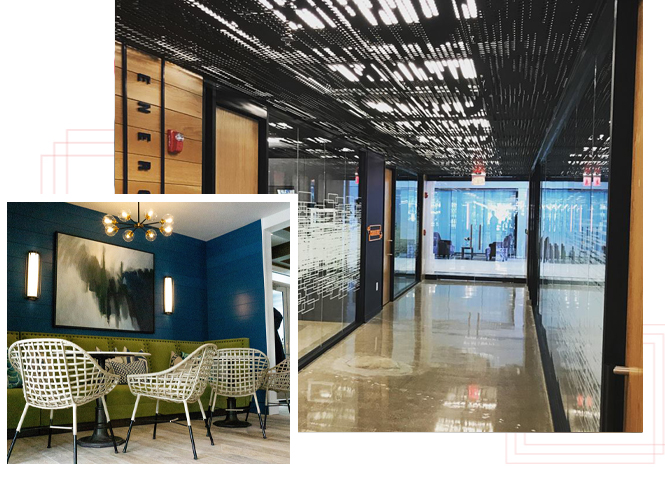
- Metering: Commercial properties often require separate metering for different areas or tenants within a building, which may involve more complex panel configurations and metering arrangements compared to residential setups.
- Regulatory Requirements: Commercial electrical installations must comply with different codes and regulations compared to residential installations. These requirements may include stricter safety standards, load calculations, and inspection procedures for commercial panels.
- Usage and Application: Commercial electrical panels are designed to handle the specific electrical needs of commercial buildings, such as powering HVAC systems, lighting, machinery, and office equipment. Residential panels, on the other hand, are tailored to meet the demands of typical household appliances and lighting fixtures.
Overall, while both residential and commercial electrical panels serve the purpose of distributing electricity throughout a building, they are engineered to meet the unique requirements and usage patterns of their respective environments. The unique characteristics of each type of panel often necessitate different approaches, techniques, and considerations. Specialization in either residential or commercial electrical work allows electricians to develop the expertise required to effectively address the specific needs of each type of installation.
R&T YODER ELECTRIC, INC.
READY TO HELP YOU WITH YOUR ELECTRICAL PANEL NEEDS
Get licensed and bonded, professional commercial and industrial electrical work from R & T Yoder Electric. Call us to schedule an appointment or request an estimate today!
Electrical Panel FAQs
One famous tagline we’re all familiar with is “You’ve got questions, we’ve got answers.” When it comes to Yoder Electric and your electrical panel replacement, that tagline is 100% spot on. Our team has collected the most common questions we’ve been asked for electrical panel replacements and compiled this set of answers to get you started.
What types of electrical panels are most common?
We’ve already mentioned it indirectly, but to be clear there are two primary types of electrical panels. The first is your old-school-style fuse box system. These operate by causing a tiny wire to pop within the fuse whenever the power flow exceeds the circuit’s capacity. To use any electrical appliance or components on that circuit, you need to replace the blown fuse with a good one. Breaker boxes eliminate the need for fuse replacements. In this case, whenever the power load exceeds what the circuit can handle, the breaker kills the power. Now to restore power, all you have to do is flip the breaker back to the “off” and then back to the “on” position. In many cases, there will be a quick visual reference of the tripped breaker: a red strip visible through the breaker’s small glass window. If you see red, that means that’s the breaker that just turned off.
How long does it take to perform an electrical panel replacement?
The time to perform an electrical panel replacement can vary depending on the extent of the project and if multiple electrical panels are needing to be replaced. In addition, if you’ve also requested a whole-home rewiring as a part of the project, this can add to the time involved. While we hate to say any job can be performed quickly, as there are always unexpected situations that can pop up, as a rule of thumb you should expect a residential electrical panel replacement to take no less than four hours. A better timeframe would be closer to eight to ten hours, though again this can vary depending on the scale of the project. Commercial projects simply have too many variables and we encourage your team to reach out to us as soon as you know you need our services so we can minimize downtime as much as possible.
Do I need a permit to replace my electrical panel?
If you’ve ever added to your home or did any work that required digging, you’re likely aware of the need to obtain a permit for the work. Electrical panel replacement projects often fall into what some municipalities call a “large-scale” project. In addition, a city or county inspector frequently has to sign off on the work. While the answer can and will vary depending on where you live, you may need a permit for an electrical panel replacement. It’s better to err on the side of caution than to face unexpected fines for not obtaining a permit. Our team can help you decide whether you will or will not need a permit, which is yet another reason why this type of project should be handled by a licensed professional.
What are some signs that you need an electrical panel replacement?
We’ve already mentioned a few of the things that can point to the need for an electrical panel replacement. Those include flickering lights, minor shocks from switches, rusty fuse panels, constantly tripping breakers, and the age of your electrical panel. There are also other causes for each of those problems; the best solution is to contact our office and set up an appointment for service. We will be able to then let you know if you need a replacement or if another problem is causing the issues you’ve encountered.
How often do you need an electrical panel replacement?
Electrical panels should last for, at a bare minimum, twenty-five years. Some may even be rated for upwards of 40 years. The answer to this question will depend on a variety of factors, though if you had a replacement at any time in the past ten to fifteen years, you should be good for another decade or so.
What is the typical cost for electrical panel replacement services?
Many customers have asked for a “ballpark” quote for electrical panel replacement services. Like our many other services, we believe tailored and customized estimates allow us to better serve both our residential and commercial customers. If you think it may be time for an updated electrical panel, you can start by contacting our office. Our knowledgeable sales team can help you set up a convenient time for a technician to come to your property to complete an estimate.
Do you offer quotes for electrical panel replacement?
Yes, we offer quotes for electrical panel replacements. Each of our sales offices can help you with the steps to getting a quote, including whether one of our team members will need to visit your home or if we can conduct most of the estimate via email.
Will I need to rewire my house if I’m having an electrical panel replacement?
As with many of these questions, the answer is not cut and dry. Rather, the needs of each home or commercial facility will be different. If your home is using older or less reliable wiring, and you’re switching from a fuse box to a breaker box, you may need to rewire your home. On the other hand, if your home is relatively newer and you’re simply replacing your electrical panel with a newer model, then it’s equally possible we won’t need to update any wiring throughout your home. Again, a custom project estimate will help you make an informed decision.

